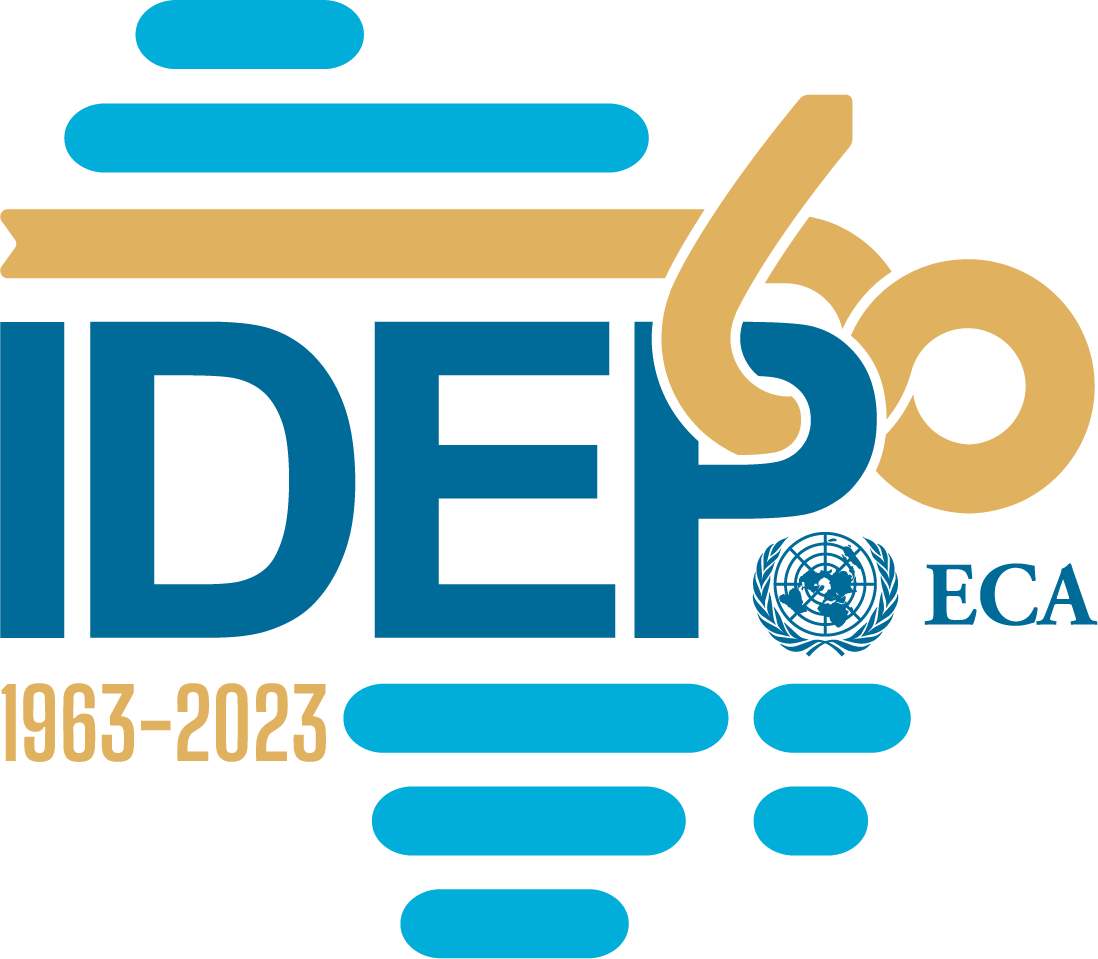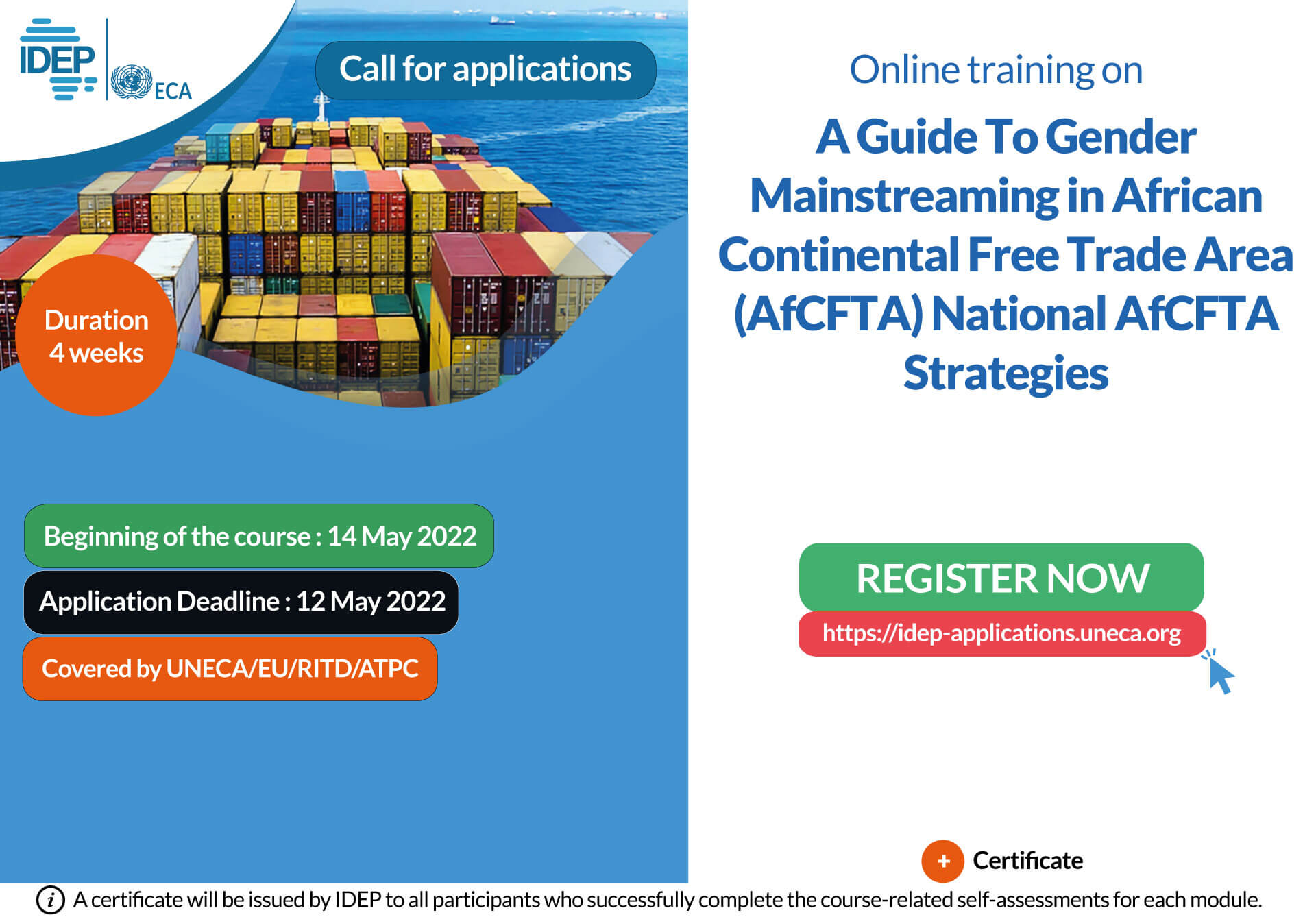A Guide To Gender Mainstreaming in African Continental Free Trade Area (AfCFTA) National AfCFTA Strategies
Announcement in Brief
|
Programme Rationale ?
On 30 May 2019, the Agreement Establishing the African Continental Free Trade Area (AfCFTA) came into force, establishing a single market of 1.27 billion consumers with an aggregate GDP between US $2.1 and $3.4 trillion. The AfCFTA has the potential to generate direct and indirect employment - in particular for women and young Africans, while advancing food security, agriculture and infrastructure development goals. While the AfCFTA Agreement does not incorporate a separate chapter on gender and trade, the Agreement explicitly recognises the importance of gender equality. Article 3(e) specifies that the AfCFTA aims to “promote and attain sustainable and inclusive socio-economic development, gender equality and structural transformation”. Likewise, Article 27(d) of the AfCFTA Protocol on Trade in Services makes explicit reference to improving the export capacity of formal and informal service suppliers, with particular attention to micro, small and medium-sized operators and “women and youth service suppliers”. Notwithstanding these explicit and numerous other implicit provisions in the AfCFTA Agreement that could foster women’s economic empowerment, benefits for women are not automatic. Indeed, intra-African trade liberalization could exacerbate existing gender gaps if the necessary steps are not taken to prevent — or alleviate — potential adverse effects arising from AfCFTA market liberalization.
Specific Objectives
The objective of the course is to assist policy makers and practitioners in the design of targeted gender-responsive policies and complementary measures to ensure that women can leverage new opportunities and benefits of the AfCFTA. To this end, the course aims to provide guidance and a practical approach to integrating a gender dimension in the AfCFTA, specifically through the process of gender mainstreaming in National AfCFTA Strategies. At the end of the course, participants will be able to :
- Understand how key provisions in the AfCFTA Agreement can be leveraged to advance gender equality and economic empowerment opportunities for women, according to the key economic roles they play.
- Design a strategy for mainstreaming gender in National AfCFTA Strategies and/or other instruments to implement the AfCFTA Agreement; and understand how to undertake gender analysis as a critical tool of gender mainstreaming.
- Understand the implications of the AfCFTA for women-owned business, small-scale and informal cross-border traders; analyze e- commerce impediments and opportunities to support effective AfCFTA implementation.
- Identify opportunities and gender-specific barriers confronting women in strategic economic sectors, including agriculture, manufacturing and services.
- Adapt and apply the learning materials to country contexts when assessing the potential impact of the AfCFTA on women and men.
- Develop AfCFTA evidence-based policy responses that help to build back better in longer-term
- post-COVID-19 economic recovery efforts, with gender equality, sustainability and human rights at the core.


